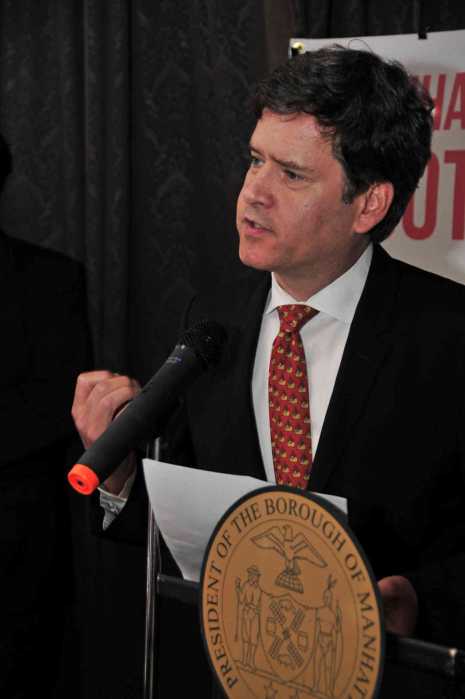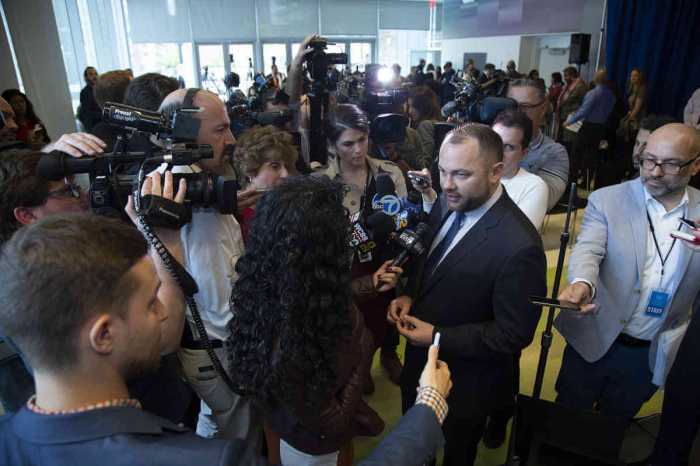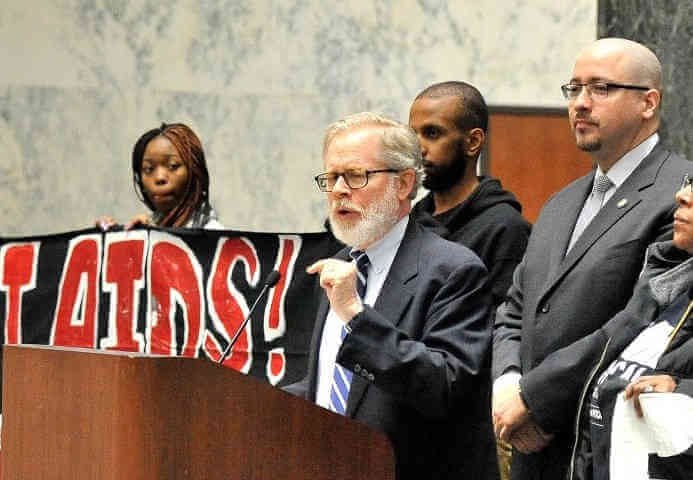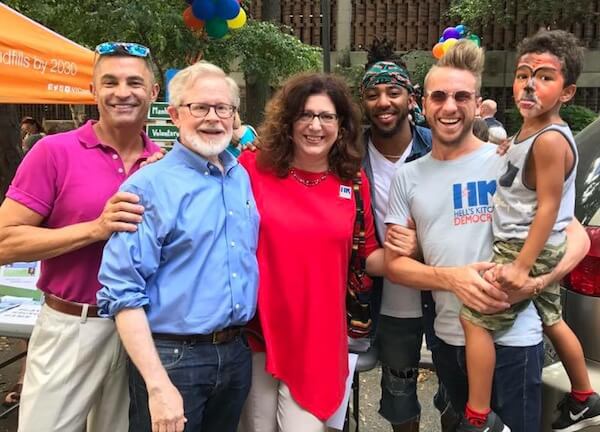City Health Commissioner Mary Bassett. | GAY CITY NEWS
Roughly three months after the closing of the city’s Chelsea sexually transmitted disease clinic for a two-year renovation touched off protests, the city health department and community activists reached an agreement that will replace the services lost when the clinic was shuttered on March 21.
“This plan will help make sure that New Yorkers who have come to rely on the Chelsea clinic can get the services they need while we transform the Chelsea clinic into a world-class facility,” Dr. Mary T. Bassett, the city’s health commissioner, said in a June 16 statement. “I thank Councilmember Corey Johnson for helping us coordinate with community partners to ensure low and no-cost services are available in the neighborhood.”
The statement, which was written with Johnson and activists, also quoted Johnson, who represents Chelsea and is the out gay Health Committee chair, Mark Harrington, executive director of the Treatment Action Group, and James Krellenstein, a member of ACT UP New York. Harrington and Krellenstein were among the health department’s harshest critics. Activists who are now praising the deal previously charged that the health department never had a plan to replace the lost services other than sending clients to another city clinic that is 70 blocks from the Chelsea clinic.
State Senator Brad Hoylman, who is also gay, and Assemblymember Dick Gottfried were also quoted. Both represent Chelsea, as well. They participated in a May 15 meeting that was organized by Johnson and included activists and senior health department staff.
Under the deal, the health department will keep a mobile van at the Chelsea clinic location to send clients to three nearby non-profits that will provide HIV and sexually transmitted disease testing and treatment. The department will fund those services at the Community Healthcare Network, the Callen-Lorde Community Health Center, and Mt. Sinai Downtown Comprehensive Health Center. The city is also paying for one nurse practitioner at each site. That funding will “support approximately 60 to 70 more sexual health visits per day than what is currently offered,” the statement said.
Six non-profits will continue to operate mobile testing vans at the Chelsea clinic site. The statement said the vans “can accommodate approximately 10 to 15 sexual health visits per day.”
Then, in the fall, the health department will keep a “full-service” mobile clinic outside the Chelsea clinic site that will provide “HIV and STD testing and accommodate approximately 10 to 15 more sexual health visits per day than what is currently available.”
These facilities, along with the city’s eight other sexually transmitted disease clinics, will “create a patient care capacity that approximates that of the Chelsea Clinic,” the statement said.
Since 2012, the Chelsea clinic had about 20,000 visits a year, more than any of the other city clinics.
In a June 3 protest, demonstrators called out Mayor Bill de Blasio over the city's widely panned handling of the Chelsea STD clinic closing. | GAY CITY NEWS
ACT UP held a June 3 protest outside City Hall that notably featured a shift in their target. Previously, activists had chastised the health department; they turned their fire on Mayor Bill de Blasio at the protest with mocking signs. The health department believed it already had a deal on June 3.
The clinic, one of nine the city health department operates, was vital because Chelsea and Hell’s Kitchen have the highest rate of syphilis infections in the city. That high syphilis rate is unchanged since 2007. Chelsea and Hell’s Kitchen also have the highest rate of new HIV diagnoses in the city. The syphilis and HIV rates in those neighborhoods result almost entirely from new infections among gay and bisexual men. The two neighborhoods also have high rates of gonorrhea and hepatitis C.
The Chelsea clinic was also expected to be an important resource in the Plan to End AIDS that aims to reduce HIV infections in New York from roughly 3,000 annually to 750 a year by 2020. People who have a recent sexually transmitted disease may be at high risk for acquiring HIV. Such people could be candidates for pre-exposure prophylaxis (PrEP), which involves the use of anti-HIV drugs by HIV-negative people to keep them uninfected.
The June 16 statement quoted Charles King, the chief executive at Housing Works, an AIDS group, who conceived of the plan with Harrington.
On Facebook, some ACT UP members continued to express skepticism though in a quieter voice than they used previously.
“All of these are improvements and some are solid programs that strengthen local institutions,” Jim Eigo, an ACT UP member, wrote on Facebook. “But adding abstract testing capacity in the general geographic area does not of itself replace the fragile ecosystem of a clinic and its people! And current light traffic at mobile testing vans deployed in the area suggest [sic] that, 90 days after the clinic closing, the city’s belated bandaids have barely begun to stanch a wound.”
The health department had contacted Eigo to contribute a quote to the June 16 statement, but he got their message too late and he was not quoted.




































